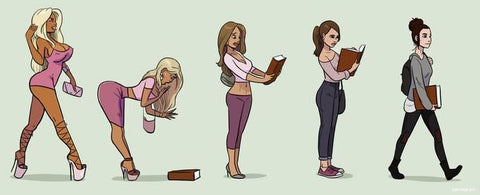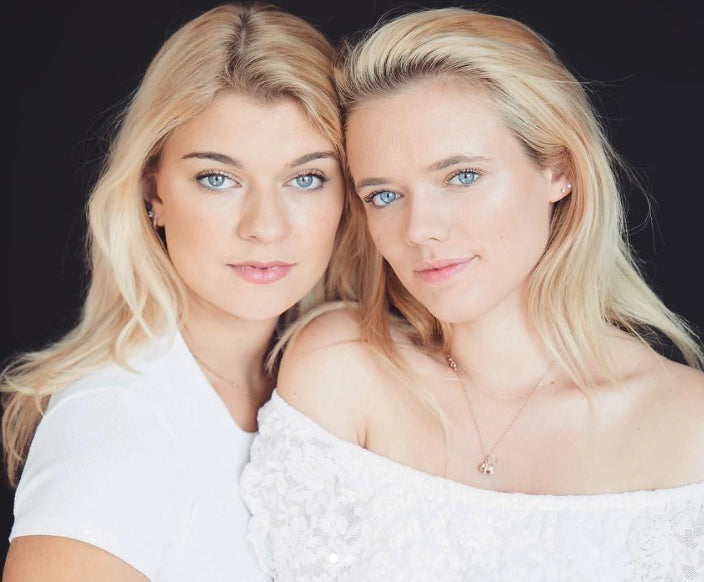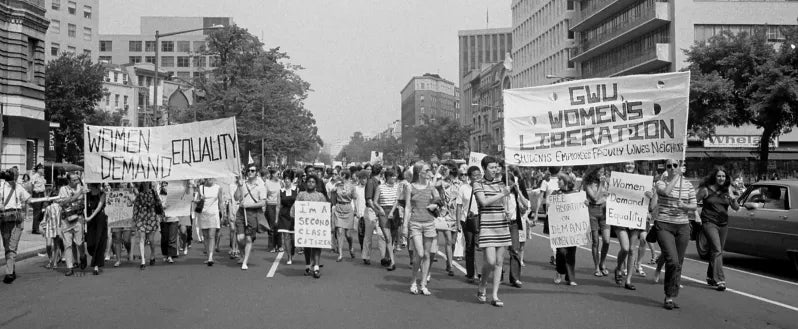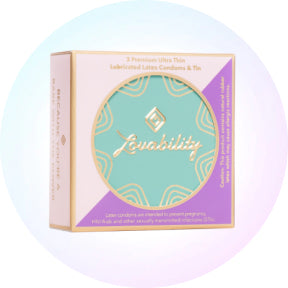Babe With The Power — Empowerment

Tik Tok Bimbos Aim To Knock Out Stigma
If you’re on social media these days, you might be hearing more about “bimbos” or “bimbofication.” Furthermore, you might have even heard of “himbos” and “thembos.”
This year, there’s been a surge of people - mostly among Generation Z - calling themselves Tik Tok Bimbos. You might be familiar with this if you follow creators like @chrissychlapecka, @fauxrich, @griffinmaxwellbrooks and @balarotten. These Tik Tokers are comedians and give life advice, makeup tutorials and more. Check out their content if you don’t follow them already!
The Dumb Blonde Stereotype
If you know what the word “bimbo” means, you might be wondering why anyone would want to be called that. According to Urban Dictionary, a bimbo is a “physically attractive but unintelligent woman.” Thus, “bimbofication” is the process of becoming hot, and therefore less intelligent.

Obviously, the term bimbo is sexist because it implies that all hot women are dumb, and smart women aren’t hot. This term further objectifies women by downplaying their intelligence and accomplishments.
Tik Tok’s Bimbo Movement
The term bimbo has long been used by men to define women based on their looks. Now, Tik Tok Bimbos are taking the sexism out of the term, and turning it into a movement. They’re stopping men from judging women, femmes and LGBTQ+ people based on how they dress or act.
Labels like this have stigmatized women’s dress, behavior and/or looks for centuries. Terms like “whore”, “slut” and “bitch” are also used to put women in a box and stigmatize our behavior. Check out Can You Be Desired AND Respected? for more on stigmatization of women’s sexuality.
When certain aspects of our lives are stigmatized, it makes it difficult for us to remove ourselves from the “single story” that men have created for us in their heads. These stigmas have real life consequences, too – in dating, careers, and all aspects of life.
What Bimbo Tik Tok Wants You To Know
Here’s what you’ll see if you’re following Tik Tok Bimbos:
- Being Hot: New age bimbos, himbos and thembos are becoming the sexiest version of themselves – not to please men or other people, but to make themselves happy.
- Sexy Outfits: You’ll see a lot of hot pink, crop tops and high heels. Everyone has their own style. You can be a goth bimbo, an ultra-femme bimbo, or a buff masculine himbo.
- Human Rights: Today’s bimbos aren’t dumb – they are activists for human rights. They support LGBTQ people, Black Lives Matter, sex workers, etc. And they won’t be silent about their opinions.
- Being Your Truest Self: Bimbos aren’t stupid, though they may forget things and be a bit ditzy. But that’s okay, because they own it, and love themselves anyways. They don’t judge others either.
Anyone can be a bimbo. Today’s bimbofication movement isn’t just for blonde white girls – the long-regarded reference to bimbos. Everyone is invited to be their hottest self – no matter their race, gender, disability or sexual orientation.
Taking Back Sexist Labels
Tik Tok creators are taking back a term that was used to diminish smart, beautiful women for years. This paves way to reclaim more sexist terms – like hoe, slut and whore – and to get rid of the stigmas that go with them.
When we take back language that was previously used against us, we take the power away from the people who try to oppress us. We give them less room to insult us and shoot us down. We show them that we don’t care what we think.
Bimbo Is Just The Start
Here are examples of ways you can reclaim other sexist terms and phrases:
- Bossy/Bitch: You’re assertive. You know what you want and you ask for it.
- Slut: You like to show some skin, and what’s wrong with that. You’re hot! Flaunt what you’ve got.
- Whore/Hoe: Why should you be ashamed of having sex? Good for you! Your body count and who you sleep with doesn’t define you. You can have sex with whoever you want!
- Walk of Shame: Don’t be ashamed of having sex. Blast the song “I Just Had Sex” as loud as you can while you leave your hookup and think “Walk of Fame” instead.
You get the picture. Don’t let sexist terms define you. Be a slut, whore and a bimbo. Dress how you want and have sex with who you want. Let’s strip away the stigmas from these words so they can’t be used against us anymore. We should be able to use these words to empower each other.

Change with these terms won’t happen in a day, and it can be really difficult to take back hurtful words. As women, femmes and LGBTQ+ people reclaim these terms, we take back the power oppressors once had against us. We stop worrying about how men see us, and we are who we want to be. We can be hot and smart, and we don’t need anyone’s approval.
So put on those heels, fishnets, crop tops, and lipstick. Be the hottest version of yourself- for you, not for the eyes of men.
About The Author
Veronica Mohesky is a University of Missouri graduate with a degree in Emerging Media Journalism. She graduated in December 2020 and works for a public television stations as a digital media associate. Veronica loves to report on sexual health issues and believes it is important to have conversations to de-stigmatize sex, pleasure and STIs. You can find her on instagram at @veronicamohesky13.

Finding Connection With Tantra: An Interview with Kinktra’s Jane Jett
Feeling disconnected? Kinktra's Jane Jett shares how Tantra for beginners builds self-love and will help you feel confident, empowered and irresistible.
Power Babe Interview | with Amelia Baker & Mackenzie Munro of Blonde Mamba
All around us, Generation Z is awakening. Armed with a burning desire for change, voices speak from every corner of the world saying just about anything and everything there is to say. So, in this rapid-fire age of information, young creatives are asking, how do we make sure that we’re heard?
If we refine our global perspective to one of the most chaotic cities in the world, and further, to one of the most chaotic industries in the world, we’ll find two Gen Z creatives hellbent on sharing their message.
Amelia Baker and Mackenzie Munro, co-founders of the Los Angeles-based production company, Blonde Mamba Productions, are cool. They’re trendy. They’re strong. They’re perfectly Gen Z. And they’re undertaking powerful social projects like it’s their day job. Because it is.
The pair met at the world-renowned Cannes Film Festival as teenagers. Amelia was debuting her Stephen King short film, “All That You Love Will Be Carried Away”, and Mackenzie was showing a short film that she had written, directed and produced called “LOVE COINKY DINK”. Both films went on to garner numerous awards internationally, and – after following their own paths – the two would eventually become business partners.
With matching tattoos that christened their journey as friends, and while lovingly referring to one another as “wifey”, this dynamic duo sat down with us to share their story, the challenges they face as women in the film industry, and their projects to break stigmas and create meaningful change – most recently, taking on The Pink Tax.
How’d you two meet?
Amelia: Mackenzie and I both grew up on set. The first thing I produced was a short film by writer Stephen King. During the writing process, the director and I turned the protagonist from male to female, and we managed to cold call and win over an incredible actress named Lesley Sharp. That film, All That You Love Will Be Carried Away, ended up going to the Cannes Film Festival, which is where I met Mackenzie.
Mackenzie: Our parents had previously introduced us by email, so our first meet-up was essentially a business blind date! We absolutely hit it off. Within 24 hours, we had matching tattoos.
You’re tackling some big issues. Where's that motivation coming from?
Mackenzie: It’s a little bit of a story for me. So here goes.
Film school is an important first step in building a career in the film industry – as university is to most areas of study. Students are bright-eyed and bushy-tailed to take what they will learn in school and develop it into a successful and happy career.
So you’re entering film school because you want to be a writer, cinematographer, producer, director, sound, crew. What if you’re told you can’t do something because of your gender? That you can’t hold a three-pound camera because you’re a woman. That, if you want to explore the art of cinematography, where you need to operate a camera (hello?), you first have to sign a contract obligating you to pay for the camera if you break it. (Hunny, that’s 10k you wish you had). That there’s an even higher chance you’ll break it, because – in this particular project – there’s running involved. So now its “super high risk” to have a woman holding the camera while she’s running, right? And, oh, it doesn’t end there. The female professor doesn’t know how to handle the situation, so she does NOTHING and tells you to figure out how to achieve 50% of your overall mark with less than two weeks to go in some other way!
I reached out to the head of the department to discuss it, but never heard anything back. I was ignored. I was the problem.
Not cool. What kept you going?
Mackenzie: Luckily for me, I was raised by a boss lady filmmaker mom in the film industry, and I’ve been keen to pursue a career in film since the age of 8. She showed me to ignore. To continue. To kill them with kindness. And to bring the best damn running shoes you got. So I did, and that little film I made inside two weeks? It changed my life. I want to address a major problem here. Gender inequality is a problem for Hollywood, but – of course – it’s a significant problem everywhere. It happened to me and may still be happening at my university and others in Canada and the rest of the world.
So I’ve been growing a thick skin from the day I stood next to my mom on set. But what if I wasn’t? What if I was just eager to go into the industry I loved without having a clue about the way it works? If I experienced that situation, without having an idea of what was coming, I probably would have shriveled up and dropped out.
It must change. Not just at the top, but also at the beginning, especially in those first years — that first impression.
So you guys reconnected and decided to launch Blonde Mamba Productions in 2018. What’s the mission behind it?
Mackenzie: Our motto is “what doesn’t kill you gives you content” which is in parallel to our mission of going out and finding the story’s core truth. Everyone can sniff a lie — even in film and television. It’s time the voices that have been shushed are heard, and we are the ones who want to tell it.

Our motto is “what doesn’t kill you gives you content”
Do you have a different or unique approach to creating content? What’s the latest project?
Amelia: At Blonde Mamba, we don’t just believe in telling stories; rather, we build worlds with authentic perspectives and genuine voices. Not only does our slate revolve around issues of social impact, such as feminism, mental health and homelessness, but we strive to provide a powerful platform for young creatives.
Mackenzie: An example is Pink Tax, a show mixing Broad City and the Women’s March. Instead of making a traditional 2D show, we wanted to blend in community and action. So, we’re making an immersive room series around the issues women face, and ‘vignettes’ with different brands, to get the Pink Tax message out worldwide.
What got you into working on the Pink Tax issue?
Mackenzie: I was in the shaving aisle looking for the pink razor I usually go for. On my way there, a men’s vibrating razor caught my attention (probably because it was a vibrating razor; sounds fun, right?). And I picked it up to check it out a bit more, thinking to myself, I wish I had a beard to try this out on. Then when I went to grab the pink razor, I took a second look at the price and realized it was almost double the price of the vibrating razor. I couldn’t help but question: What? How? Who? So I thought, okay, I’ll buy the vibrating razor and try it out. To my surprise, I came out of the shower feeling like a smooth goddess that just awoke from some bad dream about the many pink razors that have constantly cut and irritated me, and even worse—the terrifying amount of money I’d wasted on all of them.

Why do you think we’re hearing more and more about the Pink Tax?
Amelia: This issue secretly affects all women on a daily basis! Spanning multiple industries, women lose about $1,350 to the Pink Tax annually.
How do you think your work with the Pink Tax has larger social implications?
Mackenzie: We hope to bring awareness to women across the globe that they’re being duped and robbed every day because of their gender. We want to get the proposed Equal Rights Amendment in the U.S. Constitution to completely eliminate the gender pay gap, in hopes of accomplishing a massive ripple effect to full-on gender and racial equality in our world.

What is your experience as a woman in your industry? What are some of the biggest challenges you face?
Mackenzie: As a woman in the film industry, and also as a daughter to woman in the industry, I’ve almost seen or heard it all. Amelia and myself have both been caught in plenty of #metoo situations, and continue to be extra cautious before going in any meeting room. It’s tough. But teaming up together was the best decision because anything we face, we face it together. Funny enough, even together, we face some of the strangest/most demeaning situations (from men and women, by the way).
Do you see change happening in the industry?
Mackenzie: Definitely, more so in the way people are consuming content. In terms of diversity in the industry, it’s definitely shifting. Except, there’s still a large gap. And people are stuck trying to just “tick boxes,” which is very wrong and against the purpose.
Amelia: I actually just saw ‘HoneyBoy’ last night – which is about Shia LaBeof’s relationship with his dad. The film is directed by a woman, Alma Har’el AND the cinematographer is also a female, Natasha Braier… a double whammy – which is SO awesome to see right now.
What does power mean to you? What does being a “Babe with the Power” mean to you?
Amelia: Power is an incredible force. Though sometimes polarizing, power can also unite, excite and inspire. A wonderful myriad of things, power includes opening someone’s mind, implementing change or simply staying true to yourself in the chaotic wild that is Los Angeles.
Mackenzie: Being a Babe with the Power means loving one’s self, supporting others [especially women, go us!], and striving to create an explosive and inclusive space for collaboration, cultivation and expression.
For more information on Amelia and Mackenzie’s projects, check out Blonde Mamba Productions. To learn more about its campaign against the Pink Tax, you can follow on Instagram and visit their website to join the movement.
Where have you seen the Pink Tax pop up in your own life? Let us know in the comments below.

To The Sexual Pioneers Before Us — Thank You!
It's not easy for anyone these days. Attempts to take back some of the hard fought rights won over a long history of battling for women are coming from all directions.
And while we’ve taken the time to self indulge in cries and sorrow, we’d like to invite you to think about some of the women before us who made love, sex and intimacy “mainstream” and safer. We have a lot to thank them for! After all, they’ve helped create the exciting, hopeful and breath-taking world we live in. Let’s use their examples to fuel us as we fight on!
Here are a few of the “Power Babes” who’ve helped us understand our bodies, our minds and our passion just a little bit more. Thank you, ladies!
Margaret Sanger
Margaret Sanger isn’t a new name to anyone who uses birth control.
She was the original Babe With the Power. For those of you who aren’t familiar with the all-powerful Sanger, she dedicated her life to legalizing birth control. She started out in the Lower East Side of Manhattan, working as a nurse. She coined the term “birth control” in 1915 and was arrested for opening up her first birth control clinic in 1916. By 1921, she founded the American Birth Control League which became Planned Parenthood.
Every time you take your birth control, please send a warm thank you to Margaret.
Virginia E. Johnson
This name shouldn’t be new to anyone who took a high school psychology class, but she’s a pioneer sex researcher goddess and we owe her a huge thank you!
She worked tirelessly with William Masters to understand sexuality and sexual intercourse and to help de-stigmatize it. In the 1960s, mind you! While people were burning Beatles albums, she was studying sexual intercouse in a lab. She was the key component for one of the largest human sexuality studies in history. Her warmth, kindness and openness was what made participants feel comfortable enough to shed their clothes and open up about their sexuality as well as be studied during the most intimate times. She never stopped learning, growing or researching sexual health and intimacy.
Dr. Ruth Westwheimer
We know her, we love her, and can only imagine how amazing family dinners would be if Ruth Westheimer was at our table.
She’s been talking about sex since her first radio show “Sexually Speaking” in 1980, and continues to talk about it on her Youtube channel. She never misses the opportunity to give frank sex advice and the world loves her for it. She emphasizes the importance of relationships, communicating and more recently, unplugging from your phone! She gives a strong warning to long term couples as well, “Don’t let boredom creep in to the bedroom.”
Just this year, a new documentary about her amazing life dropped. We totally recommend checking it out.
Everyone would have a lot less fun and be a bit more sexually confused if Dr. Ruth wasn’t such a powerful babe! Thanks, Dr. Ruth!
Julie Schwartz Gottman
Julie Gottman is co-founder and President of the Gottman Institute, a world-renowned therapy institute for couples.
Julie has helped thousands, probably millions, of couples communicate better and increase their intimacy – physically and emotionally. She and her hubby are the pioneers in couple’s health, communication and sex research. If you ever have a fight with your partner (which is inevitable and totally normal), research "The Gottman communication techniques."
You and your partner will thank her, revel in the ease and passion of your talks, and maybe even wonder what all the fighting was about in the first place! By listening to partner interactions, even just for five minutes, the Gottman Institute can even predict the lasting of your relationship with a roughly 90 percent accuracy rate. Now that’s an amazing woman!
But our journey as women isn’t over just yet. We can all help further the mission of these sex-positive ladies by taking our sexual wellness into our own hands and becoming the empowered babes they so dreamed of! And so many modern women are doing this today. Keep checking in to find spotlights on some of our favorite badass babes, or what we like to call them – Babes with the Power!
______________________________________________________
Amy Haywood is a writer, storyteller, and part-time dog masseuse who loves spreading health and wellness empowerment to the masses. You can check out her writing and social media on her website, helloamychristine.com.









